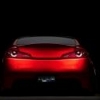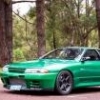Name That Rattling Sound!
Announcements
-
Similar Content
-
Latest Posts
-
I've got a 2011 J50 that I imported six years ago. The unmodified factory AV system date and time has always been correct ( Japanese timezone of course ) up until last month. About two weeks ago, at engine start, the system wished me a happy new year ( in Japanese of course ). I can't think of anything that would make the system think that the date had changed, unless the GPS component has failed/reset somehow ? I checked the GPS reception in the system settings, and it can still see the satellites. Has any other J50 owner had this happen ? It's no biggie, just annoying that it tells me the wrong date anytime I start the engine. 😅
-
By Dose Pipe Sutututu · Posted
Love following your adventures on IG, hopefully if you're still around in Japan when we visit again wouldn't mind going for a few beers with you (that's if you're keen on hearing how I hate Nissans). -
ok so if i wanted to go 18's i would go for 8's in front 30+ or 32+ off set at front and the back 9 would be ok? what offset should i aim for.. then can i do some hunting for wheel rim choices.. If i get this - will this fit all around: Size: 18 x 8.5 +37 - n what tyres size tyre should i get for front n back?
-
By GoHashiriya · Posted
Absolute f*cking nightmare. I had to take breaks constantly, and I was always pissed off when I got home. The line split in Italy on day 2 (we drove from the Netherlands), lol. Driving any narrow European town was... well, sh*t. Appreciate it man. Here, I'll just drop a favourite from the load I took on Saturday. I'll update here when things happen with the car, the thing is, with stock power and almost everything chassis-wise taken care of, there really are no problems. 268,000kms now and counting. -
Ah! I actually managed to snag a lightly used set.... that aren't so suitable for me right now. They don't work on a GTT without some cutting or creative heat moulding. I thought about reselling them myself cause I didn't want to murder them, but it looks like I'm probably going to attempt to murder them/melt them because I may as well. @GTSBoy @PranK can somebody close this thread?
-








Recommended Posts
Create an account or sign in to comment
You need to be a member in order to leave a comment
Create an account
Sign up for a new account in our community. It's easy!
Register a new accountSign in
Already have an account? Sign in here.
Sign In Now